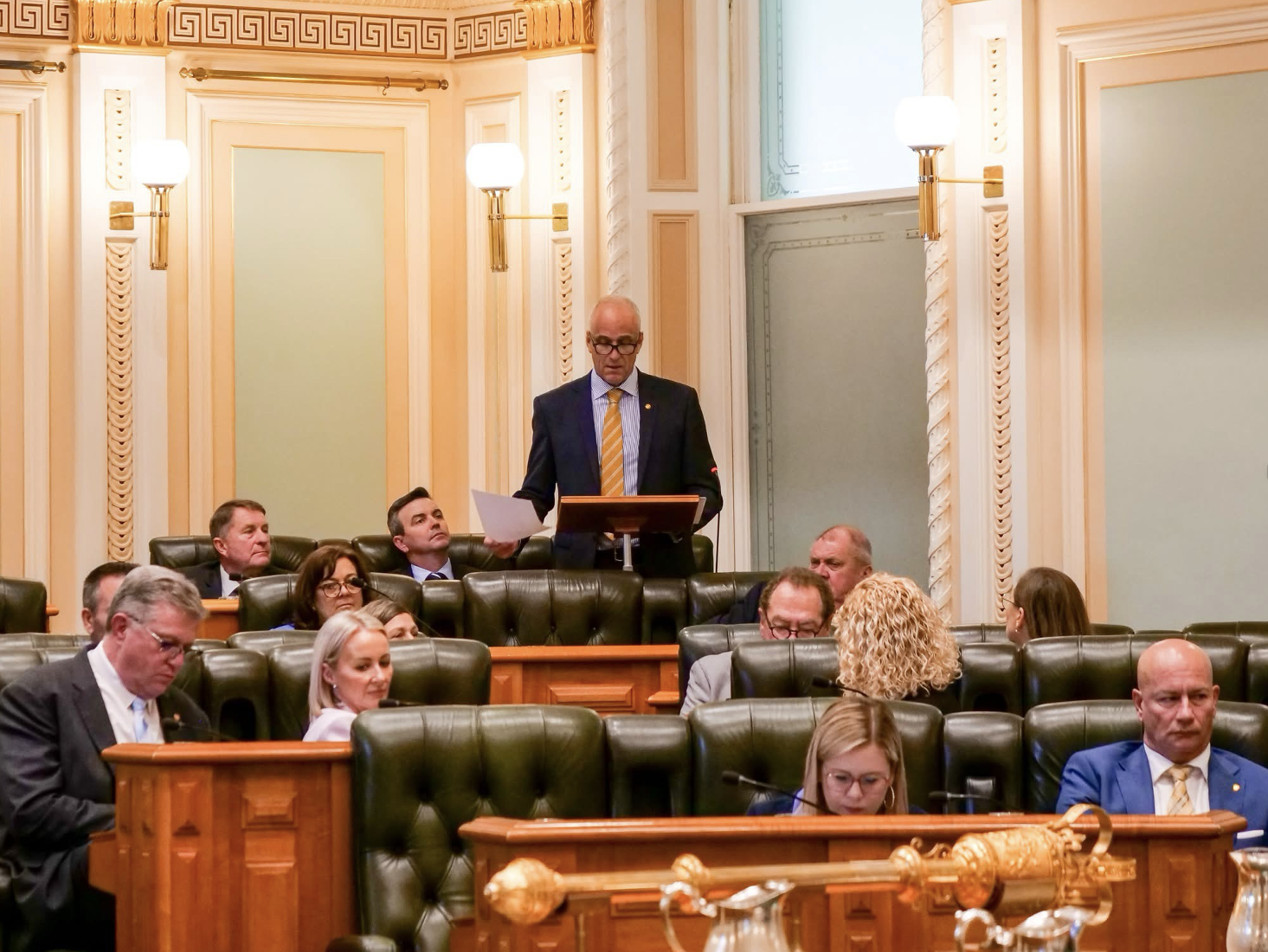

I have to, sadly, inform the House that the most dangerous place for a woman in Mackay is not in the safe night precinct, in a pub or in a club; a woman is in most danger when she is in a house or residence with a partner or previous partner. We should all feel safest at home, but this is not the case for many women. Domestic and family violence is one of the most pressing challenges facing Queensland today. In Mackay, as in so many regional communities, the impacts of violence ripple far beyond the home. They touch our schools, our hospitals, our workplaces and the very fabric of our community.
Over the last decade, calls for police assistance in domestic and family violence matters have skyrocketed by more than 200 per cent across Queensland. With my previous experience as a police officer in Mackay, I know that these numbers are not just statistics; they are families in crisis, children in fear and neighbours who feel unsafe in their own streets.
This bill is about putting victim-survivors first, holding perpetrators to account and restoring safety where people live, including in Mackay. At the heart of these reforms under the Domestic and Family Violence Protection and Other Legislation Amendment Bill 2025 are police protection directions. These new powers mean that, instead of waiting for a court date, police will be able to issue an immediate 12-month protection order to victims. They will have the ability to impose strong and enforceable conditions straightaway such as no-contact orders, cool-down orders or removing perpetrators from the home. This is about real protection when it is needed most.
Importantly, these powers are backed by safeguards. For example, PPDs cannot be issued when children are involved, when weapons are present or when there is an ongoing court matter. These measures ensure the highest risk cases continue to be dealt with through the courts while still prioritising victim safety and reducing the chance of misidentification.
This bill also delivers on our commitment to pilot GPS monitoring for high-risk domestic violence perpetrators. For the Mackay community this is a game changer. Courts will only impose these conditions when they are necessary to keep victims safe, and the trial will ensure the technology is effective before it is expanded statewide.
We also know the trauma of facing perpetrators in court can be overwhelming. That is why this bill expands the use of videorecorded evidence-in-chief, allowing victims to give their statement once on video and have it used throughout the proceedings. For victim-survivors in Mackay this means less re-traumatisation and a justice process that recognises their dignity.
The bill also strengthens the approved provider list for counselling and intervention programs, ensuring only the highest quality services are available to support both victims and offenders. In Mackay, where community organisations and service providers are already stretched, this will help ensure the court ordered programs actually deliver the outcomes needed to break the cycle of violence.
For too long regional communities like Mackay have felt forgotten when it comes to resourcing and reforming domestic violence responses. This bill shows that under the Crisafulli government Mackay matters. It shows that we will not tolerate victims waiting days for protection. It shows that we will use technology to keep people safe. It shows that we are listening to police, to frontline services and, most importantly, to survivors.
This is not just about changing legislation; this is about changing lives.
Nigel Dalton in Parliament delivering for Mackay. Photo supplied